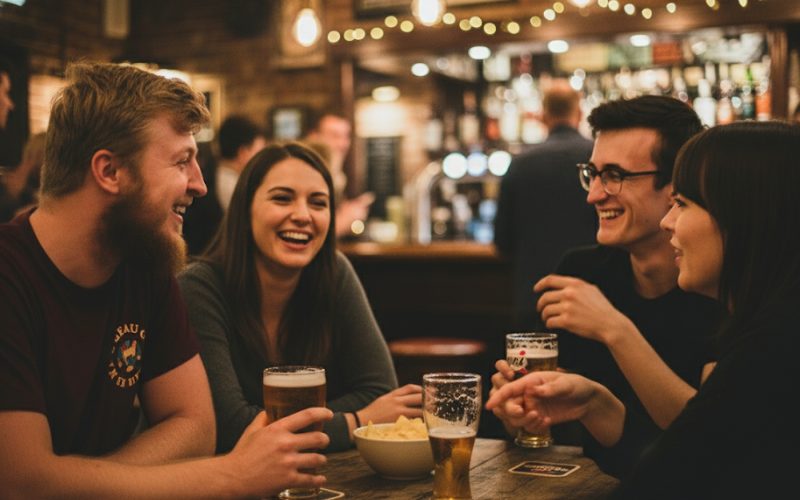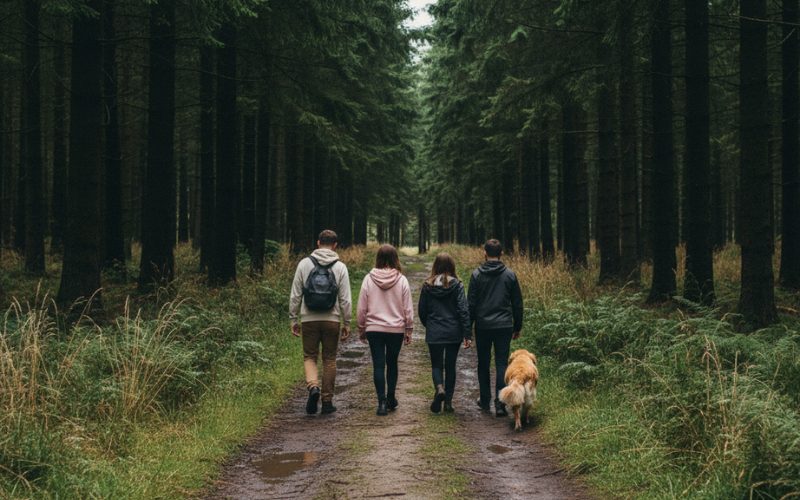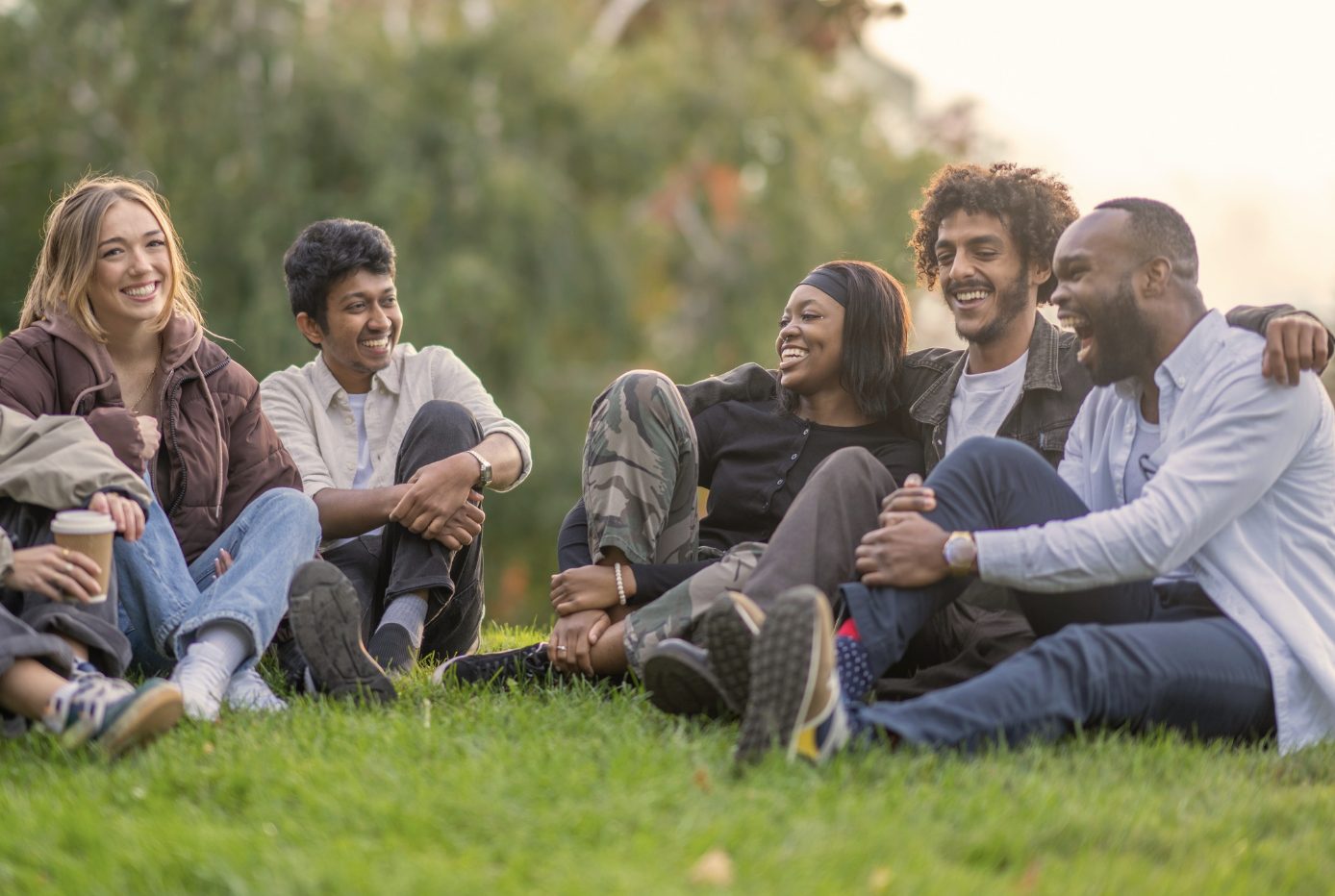Living in London we walk past thousands of new faces every day and yet we might still feel the isolating pressures of loneliness.
Loneliness can leave a lasting impact on our health and wellbeing, with research suggesting that it can be as harmful as 15 cigarettes a day.
The best medicine for loneliness: strong connections and meaningful friendships. It has even been found that friendships can account for almost 60 percent higher happiness levels.
Making these friends, however, is easier said than done, especially if you’re new to the city, experience social anxiety or just worrying about being able to afford activities. Thankfully, science has the answer.
1) Friendships take time
The most important thing to note about making friends is that it takes time; it’s unreasonable to expect strong connections from the first time you meet somebody.
Research by evolutionary psychologist and friendship expert Robin Dunbar for Fisherman’s Friends estimated that it takes roughly 34 hours to transform an acquaintance into a friendship. That works out to be 11 three hour long interactions within a six month period.
Communication studies professor at the University of Kansas Jeffrey A. Hall also estimates that it takes more than 200 hours for us to turn a stranger into a close friend.
Even after creating a strong bond it requires care to sustain it, with an estimated hour a week (or nine minutes a day) of connection needed. Missing those nine minutes can diminish the quality of the friendship by 1%.
So what actually are the best ways to make friends according to science?

2) Be present to old and new faces
Before going out to find a fresh batch of friends, consider the friends you already have but have lost touch with and don’t dismiss any simple acquaintances you may have.
The simple familiarity of a person can make it much easier to strengthen a bond through something known as the mere exposure effect.
Research by a former psychology professor at the University of Pittsburgh shows that we have an unconscious tendency to like people more when we’re used to their presence.
This doesn’t just make it easier for us to build on pre-existing acquaintances or former friendships, but it allows us to create a strong foundation for friendships with strangers to flourish from.
But remember, it does still take time to transform people into close friends.
3) Assume you are liked, because you probably are
A common trope in psychological study is the self-fulfilling prophecy: believing something is true even when it isn’t and therefore causing it to happen. That continues to be applicable in the science of friendship.
Studies show that when we fear rejection we’re more likely to subconsciously reject others.
Often we may put up our guard and act cold to people if there is uncertainty of acceptance or an assumption of rejection. This in turn may lead to rejection.
However, in psychological studies where participants were told they were liked by people (even if it wasn’t true), they acted warmer and friendlier towards them, ultimately opening the door to building a connection through the mere perception of acceptance.
Going into interactions assuming that you will be liked is not a form of delusion either. Recent research at Cornell University suggests that a “liking gap” exists in most social situations, where we are actually a lot more liked than we realise.

4) Share joy and pay attention
Friendships thrive on shared joy, and science shows that positive emotions are contagious and crucial to building connections.
Professional counselor Carl Nassar said: “First, there’s mimicry: you smile, and my face just smiles with you. Then, there’s feedback that says: Hey look, I’m smiling and this tells me I’m probably pretty happy right now.”
When we are connected to people with similar interests to us, the mutual joy of those hobbies becomes a cycle of emotional contagion and strengthens the positive associations with each other.
This sharing goes beyond just physical emotions, but also to the sharing of good news. Various studies show that people may actually feel more hurt if you withhold good news from them.
Instead, the BBC suggest practicing “confelicity”, deriving from the Latin word for shared happiness – allowing us to rejoice over positive news and share active and constructive responses with each other. Confelicity is a perfect example of contagious emotions as well. The joy we express is mirrored back, reinforcing trust, intimacy and connections.
This works both ways. Psychologists note that active listening: showing curiosity, asking questions, and remembering small details can communicate genuine care. It makes the other person feel valued and opens the door for a reciprocal response, which helps create the kind of intimacy that sustains long-term friendships.
So share your good news with those around you and listen to any news they give to you.
5) Connect through nature
It is no longer a secret that getting our hands dirty and connecting with nature has a range of health benefits: lower blood pressure, stabilised nervous system, boosted immune function, reduce anxiety and fatigue.
A 2015 study found that time spent in nature reduces neural activity in the subgenual prefrontal cortex, part of the brain commonly associated with rumination and negative thinking patterns common to loneliness.
The natural relaxation we feel when we are outside is a significant step in helping us be more open to building stronger friendships and connections, but it is also the natural world itself that expands our opportunities for connection.
Green spaces like parks, blue spaces such as lakes and rivers and dark sky sites with low levels of light pollution all allow us to shut off from major distractions from the outside world and to experience a sense of awe.
It is this awe that can nudge us into building connections. A University of California study showed that people who had just experienced awe showed more altruistic behaviour, while other studies show that we feel closer to humanity and those around us after experiencing awe-inspiring events.
Another study at the James Hutton Institute found that people closely link green spaces to feelings of connection and community, with those same spaces providing opportunities for more focused interactions with family and friends.
Simply stepping away from the chaos of a city like London and sharing that time with someone can be the beginning of a flourishing friendship.

How can the Great Friendship Project help?
Friendships aren’t built overnight, but science shows there are clear ways to make it easier: nurture new and old connections, assume you are liked, share your joy with others, listen attentively and take time to be in nature.
We offer community activities so young adults can connect and meet new people and build meaningful, supportive and long-term friendships.
We run these regularly throughout the week to ensure that members can maintain the momentum with the connections they are forming; momentum we recognise is necessary to turn acquaintances into friendship.
In a city as big as London where it’s rare to see the same person twice by chance, we have built a community where friendships can not just form, but flourish.
Above all, we aim to help young adults to foster a “love of socialising” and develop a conscious practice of building friendships and connections, through regular interactions that foster a positive attitude to meeting new people.


